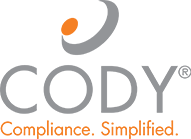Are Your Materials Section 508 Compliant?
Any time health plans prepare an electronic document that will be posted online or distributed via e-mail, the material needs to meet current Section 508 standards of the Rehabilitation Act. This is true of both internal and external documents. Failing to meet these requirements can result in fines and sanctions from the Centers for Medicare & Medicaid Services (CMS).
While most health plan compliance and marketing professionals understand the basics of Section 508, many are not up to date with the specific requirements of the recent 508 Standards Refresh.
The Guidelines
In essence, the newly introduced Information and Communication Technology (ICT) Final Standards and Guidelines require that health plans’ websites, documents and media, blog posts and social media sites support accessibility for people with disabilities. Materials must meet very specific technical and operational criteria, and incorporate Web Content Accessibility Guidelines (WCAG) 2.0.
In addition to rules about web content, the 508 Refresh specifies how operating systems, software development toolkits, and software applications (apps) should interact with assistive technology. Access is addressed for all types of disabilities, including those pertaining to vision, hearing, color perception, speech, cognition, manual dexterity and reach.
All ICT that is published on or after March 20, 2017, should be compliant as per the new standards, and final compliance with the Section 508 Refresh will be required January 18, 2018. In other words, time is of the essence. It’s also important to note that the ICT rule does not only apply to newly published material. If an older document is edited, the newly added section must be ICT compliant and footnoted.
Common Section 508 Compliance Issues
Our team and strategic partners have discovered that many health plans are not Section 508 compliant. In fact, our remediation team recently completed a scan of 200 PDF documents posted to the Member Services section of a Medicare Advantage health plan. In testing a significant number of both small and larger MA plans’ websites, these findings are very common:
- “Tags” – 23.5% of PDFs were untagged. Tags allow assistive technology to “read” a PDF to the visually impaired. Without tags, a PDF cannot be identified by technology, such as a screen reader, and fails accessibility testing.
- ISO 32000-1:2008 (PDF Standard) – 92.16% of all PDFs failed at least one test. If PDFs don’t meet ISO 32000-1:2008 standards, they are not fundamentally correct and fail this test.
- WCAG 2.0AA – 100% of files failing at least one test. WCAG 2.0AA is incorporated by reference into the new “508 Refresh.” New or revised PDFs that do not meet this set of criteria are unacceptable by HHS and CMS under current guidelines and fail accessibility testing. Plans must ensure that all new or modified content be remediated to meet the ICT Standards, or risk failing a CMS review of their public and internally published website content.
To help our clients avoid fines and penalties from CMS related to this issue, we offer internet/intranet compliance testing and analysis, as well as PDF remediation services that include a complete accessibility report for each PDF and a guarantee of compliance. Contact us today if you need help determining whether your materials are Section 508 Compliant.
